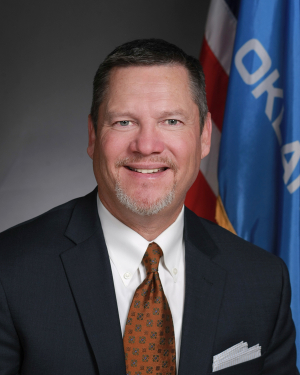A couple of weeks ago, we concluded work on the special session we convened to vote on the distribution of federal funds allocated to our state to help us address critical needs that were the result of or made worse by the pandemic. Our focus was on the strategic use of these one-time funds to move our state forward in ways that would benefit Oklahomans for decades to come.
Members from both chambers spent literally thousands of hours reviewing and vetting projects, and we ensured a transparent process with each meeting of the joint committee and the working groups open to the public and livestreamed. The projects we voted to allocate funding for include much-needed water infrastructure, health care, broadband internet access, and workforce development.
We also approved $250 million in Progressing Rural Economic Prosperity (PREP) funds, which will provide one-time support for economic development assets throughout our state. This represents a historic investment in workforce and economic development, including making infrastructure improvements and industrial parks and aeronautics facilities communities would not otherwise have been able to address.
Another crisis situation for Oklahomans has been the ongoing drought. While many parts of the state saw a little rain recently, the damage has already been done, and drought conditions still persist. During the regular session that ended last May, we approved $3 million for the state’s Emergency Drought Commission. During the special session, we appropriated an additional $20 million to the emergency drought fund. Farmers and ranchers are eligible in all 77 counties. For more information, go to ag.ok.gov/oklahoma-emergency-drought.
This past week, I had the opportunity to visit and tour our state’s Council on Law Enforcement Education and Training (CLEET) center in Ada. Created in 1963, this facility helps train prospective members of law enforcement and offers continuing education for current law enforcement officers, as well as providing training in the field of private security. I was particularly impressed with the active shooter classes available through CLEET, and it gave me peace of mind seeing the excellent training that officers from throughout the state are receiving there. I appreciate the work that CLEET does, and the dedication of our members of law enforcement to their own ongoing professional development.
There are many kinds of public service – a career in law enforcement is but one way people work to make our communities and our state better for all of us. I’m honored by your continued faith in allowing me to work on your behalf in the Oklahoma Senate. I want to also acknowledge the life of service of former Senator and Oklahoma State University President Jim Halligan.
As a result of redistricting after the 2020 census, as of this November, I will also be representing part of Payne County, which he represented from 2008 until 2016. I have long known how respected and admired Jim Halligan was at OSU, throughout Payne County, and across the state.
Jim Halligan’s leadership at OSU turned the university around during some incredibly challenging times, and he continued to serve his fellow Oklahomans with his common sense, intellect, and dedication during the eight years he was in the Legislature. He was a strong advocate for education at every level, and rose to the position of chair of the Appropriations Subcommittee on Education in the Senate.
I’m grateful for Jim’s life of service, and I want to extend my deepest condolences to his wife, Ann, and their entire family.
Please feel free to contact my Capitol office with any questions or concerns you may have about legislation or other issues impacting our state at 405-521-5628 or at Chuck.Hall@oksenate.gov.




Be the first to comment on "Sen. Hall: Funds to benefit Oklahomans for decades"